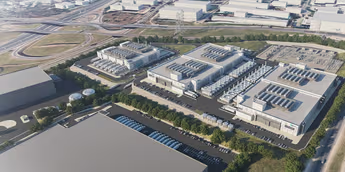Transportation cost of my rice from Adamawa to Lagos makes imported rice cheaper – Adebayo

By Erewunmi Peace
The soaring cost of food commodities in Nigeria has brought to light a paradoxical economic reality: transporting locally produced goods across the country can cost more than importing them from thousands of miles away.
This stark reality was recently underscored by Adewole Adebayo, the presidential candidate for the Social Democratic Party (SDP) in the 2023 election and a commercial rice farmer, who lamented that moving his rice from Adamawa State to Lagos State was more expensive than the logistics cost incurred by an importer bringing rice from Thailand.
The Paradox of Domestic Logistics
Adebayo’s claim, made during an interview, encapsulates a major structural defect in the Nigerian economy: the exorbitant cost of domestic logistics. For the farmer, this reality is a severe financial burden, crippling competitiveness against foreign imports, despite the nation’s push for self-sufficiency in food production.
The paradox is striking: international shipping involves port charges, deep-sea freight, insurance, and long-distance maritime travel. Yet, the final inland haul from a rice farm in Nigeria’s northeast to the consumption hub in the southwest proves to be the greater obstacle.
The Drivers of High Inland Freight
Several intertwined factors contribute to this prohibitive cost of domestic transport, turning Nigeria’s internal roads into economic chokepoints:
Fuel Price Volatility and Subsidy Removal: The removal of the fuel subsidy has directly led to skyrocketing diesel and petrol prices. Since commercial haulage trucks rely entirely on these fuels, every increase immediately translates into higher freight charges.
Dilapidated Road Infrastructure: Decades of under-investment have left many key arterial roads in poor condition. Poor roads slow down transit times, increase vehicle maintenance costs (tyres, suspension, engines), and raise the risk of accidents or damage to goods, all of which are factored into the final transport fee.
Security Risks and Insurance: The routes connecting northern agricultural zones like Adamawa to southern markets are often plagued by security challenges.
Trucking companies must account for the risks of banditry, theft, or extortion, leading to higher insurance premiums and operational costs.
Multiple Levies and Extortion:
Despite official policies against illegal checkpoints, haulage operators frequently report being forced to pay unofficial levies, fees, or bribes at numerous points along interstate highways. These non-tax costs are non-productive but are ultimately borne by the consumer.
Inefficient Supply Chains:
Unlike the streamlined global supply chain for imports, Nigeria’s domestic logistics lack integration. Poor warehousing facilities, high transaction costs, and regulatory bottlenecks add friction and expense to the movement of agricultural goods.
Economic Impact on Food Security
The high cost of moving food domestically is a direct and powerful contributor to food inflation and poses a threat to food security:
Farmer Disincentive: When the profit margin is eaten up by logistics, local farmers are discouraged from maximizing production. Why invest more in rice farming if the cost of getting it to market makes it unprofitable?
Reduced Competitiveness: Local produce becomes uncompetitive against imported rivals. The cost structure artificially favors foreign rice, undermining efforts to build a resilient domestic rice industry.
Consumer Burden:
Ultimately, all transportation costs are passed on to the final buyer. The high freight cost from Adamawa is one of the key factors driving up the price of locally grown rice in Lagos markets.
Adebayo’s statement serves as a critical indicator that for Nigeria to successfully achieve economic diversification and food security, policy focus must shift from merely boosting production to aggressively fixing the fundamental infrastructure and security issues plaguing its internal supply chains. Until the road from Adamawa is cheaper and safer than the sea lane from Thailand, local farmers will continue to face an uphill battle.




















































































































































































































































































































































































































































































































































































































































































































































































































































































































































































































































































































































































































































































































































